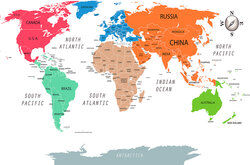Rudolph was unable to secure the succession to the German throne for his son, and on his death in 1291, the princes, fearing Albert's power, chose Adolph of Nassau as king.
Up to 1848 he was a government official in Nassau; in that year he became a member of the German national parliament and undersecretary of state for foreign affairs.
Throughout the revolutionary years he supported his brother's policy, became a member of the Erfurt parliament, and, after the collapse of the national movement, returned to the service of the duchy of Nassau.
For the Rhine provinces not incorporated in Prussia, with the special object of regulating episcopal elections; concerned Wurttemberg, Baden, Hesse, Saxony, Nassau, Frankfort, the Hanseatic towns, Oldenburg and Waldeck.
In the town hall (1618) are some corporation pictures, portraits of the counts of Orange and Nassau, including several by Michiel van Mierevelt (1567-1641), one of the earliest Dutch portrait painters, and with his son Pieter (1595-1623), a native of Delft.


